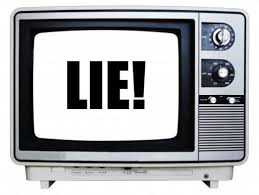Fracking is the controversial process of blasting a mixture of water and other chemicals into subterranean rocks in order to open up fissures, thus releasing oil or gas.
When I see definitions of fracking it’s always the “and other chemicals” bit that worries me. I can imagine the fracking PR man saying “we inject water into the ground,” and then adding under his breath “and other chemicals,” as verbal small-print. Actually, the fracking companies don’t disclose the exact mixture they use to frack due to the special recipe being a “trade secret”, but samples have concluded that benzene, toluene, ethylbenzene and xylene are amongst the lovely substances that are used.
I’ve always been morally against fracking anywhere, but a few months ago my NIMBY reflex was activated when I heard that the fracking company ‘INEOS’ wanted to test Sherwood Forest for its fracking potential. Sherwood Forest, the home of Robin Hood, is internationally famous and is a 15-minute drive away from where I live. The tests would involve seismic surveys just a few hundred yards from the Major Oak (Robin Hood’s tree). Obviously, when I heard about this I was outraged. I went to a demonstration in January organised by Frack Free Nottinghamshire and Friends of the Earth, as well as other activist groups (see the picture I took at the top of this article and this BBC story ).
The seismic surveys, a pre-cursor to fracking, are damaging in themselves (explosives are often used, vehicles need access, and detectors and cables need to be laid down over a wide area), but they are also a clear indicator that a company wants to frack the area. An INEOS spokesperson said, in response to the Sherwood Forest demonstration, that INEOS were only trying to get permission for test surveys and that there was no need to cause any alarm for the general public…which tells me there would be cause for alarm if the fracking actually went ahead! My advice, if there are plans for fracking in your area, is to be active early, and show your defiance at an early stage. Don’t let them get a foot in the door!
There are obvious environmental concerns about fracking, but the social side is also very worrying. I live in a former coal mining community, so I have experienced the after-effects of Margaret Thatcher’s brutal attack on the miners in the 80s. Sure, fracking would provide jobs in the area, but I know the government would have no qualms about unceremoniously taking them away on a whim and turning the area into a run-down ruin that would take 30 years or more to recover.
Wouldn’t it be better to invest in clean energy? Solar power, wind power, hydroelectricity? We should learn from Portugal who, last year, ran 4-days straight on renewable energy alone (why this wasn’t leading news all over the world is beyond me!) – read about Portugal HERE.
Looking at all the money-spinning schemes of the past, including the use of asbestos, tells me that it’s always the bigwigs that benefit financially, and it’s always the little people who are left with the long-term shit that it produces. INEOS doesn’t care if they poison our water, kill our habitat, destroy our communities as long as they get a short-term financial boost. In the case of Sherwood Forest they would also be attacking a world-renowned socialist icon in Robin Hood. What would he say about all this?
Robin Hood is long dead, so we have to fire his arrows for him. If there are plans for fracking in your area I urge you to get active, get organised, and refuse to let it happen!










